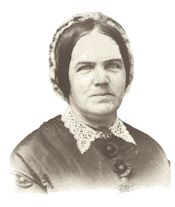Colonel Lyon’s Letters.
Huntsville, Ala., Dec. 25, 1864.—I write now with some little expectation that you will receive the letter within a reasonable time, for I hear that they have at last got a mail through to Stevenson for us, which should reach us tomorrow.
Monday morning General Granger ordered me to take the 13th, the cavalry and a battery and go to Huntsville and assume my old command. I commenced the movement Monday afternoon, the infantry and artillery moving by rail. We knew nothing about the situation of things here, so we advanced cautiously, the cavalry reconnoitering ahead of the train. We reoccupied the place on the 21st, the few Confederates here fleeing at our approach. It has not been strongly occupied during our absence, and we find things much as we left them. The people profess to be glad to see us back here, although I think the most of them lie about that.
We have taken a comfortable sort of a house for headquarters, partly furnished; and when you hear that Hood’s army, including Forrest, is across the Tennessee river and everything gives promise of a season of quiet on this side, if the winter is not too far advanced you may expect marching orders for this place, but not until the tide of war has rolled farther off.
The next day after we got here my cavalry had a severe fight just a few miles out of town with a part of Roddey’s command, and we were victorious. The rebel loss was at least 100 in killed, wounded and prisoners. Our loss is quite light. We have now some 80 prisoners of war captured since we arrived in this vicinity, several of whom are from here. We smashed a new company raised here during our absence.
General Granger moved down the river with the balance of his command to Decatur, but found the place so strongly occupied that he did not deem it prudent to attack. He returned with his fleet to Whitesburg, came up here and waited for General Steadman, who passed here on Saturday with a large force in that direction. General Granger left me in addition to the 13th, the 73d Indiana, and took the rest of his force down the river again to co-operate with Steadman in taking Decatur. Our force is so large there that the rebels will probably evacuate without a fight. We know nothing of Hood’s army except that it was badly defeated before Nashville and is retreating towards the Tennessee river. He will get across badly damaged; retreat as long as he is pursued; and then halt, reorganize, and in sixty or ninety days will have a force that will require another hard campaign to disperse.











